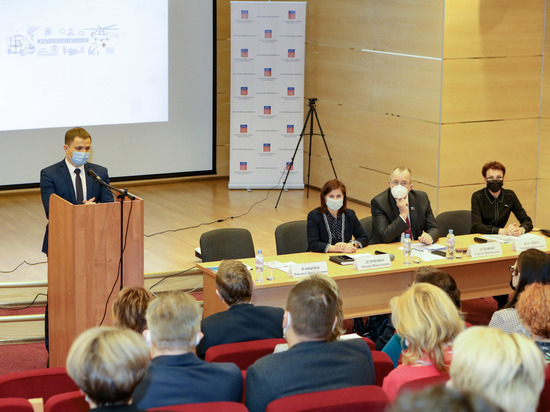An expanded board of the Ministry of Health of the Murmansk Region was held at the end of the year 2020.
The Minister of Health of the Murmansk Region Dmitry Panychev noted that the past year has become a serious test for medical workers throughout the country and the world. The Murmansk region was no exception, but the region’s healthcare system coped with the challenge of the pandemic with dignity.
The necessary measures were taken in a timely manner: in 12 medical organizations, beds were deployed to treat patients with COVID-19, more than 900 medical workers were mobilized, a stock of medicines, PPE and equipment necessary to provide medical care to patients with COVID-19 was created and maintained.
Specialized departments of medical organizations were equipped with oxygen concentrators, ventilators and ECMOs, computed tomographs and systems for PCR diagnostics. In the shortest possible time, 3 laboratories for testing were launched in organizations subordinate to the Ministry of Health, with a capacity of up to 5,000 studies per day. Organized SMS-informing about the results. 24 patronage teams were created to provide medical care at home, remote observation centers were organized, an outpatient CT center was organized. 22 ambulance teams have been organized, a coordination center has been created for routing patients with COVID-19, and a department has been allocated for the treatment of COVID-19 in pregnant women, postpartum women, women in labor and newborns.
In the fall of 2020, vaccination of the population against the new coronavirus infection with the Sputnik V vaccine began. Currently, more than 55 thousand inhabitants of the Arctic have been vaccinated.
Despite the difficulties associated with the pandemic, in 2020 the regional health care system managed to maintain the volume of high-tech medical care, about 8 thousand patients received such assistance, more than half of them on the basis of medical organizations subordinate to the regional Ministry of Health.
New medical units have been opened, including an outpatient oncological care center, stress-ECHO rooms, a reproductive technology center, a hemodialysis room, and a department for outpatient palliative care for children. A project has been implemented to provide drugs for patients who have suffered a stroke, heart attack, as well as those who have undergone certain surgical interventions. More than 1,500 of these patients received drugs.
Serious work has been done to improve the material and technical base of health care. For the re-equipment of medical organizations, more than 80 pieces of equipment were supplied, among them: an angiograph, digital fluorographs, a brachytherapy apparatus, 2 accelerating complexes. Repairs were carried out at 63 medical facilities in 10 municipalities.
